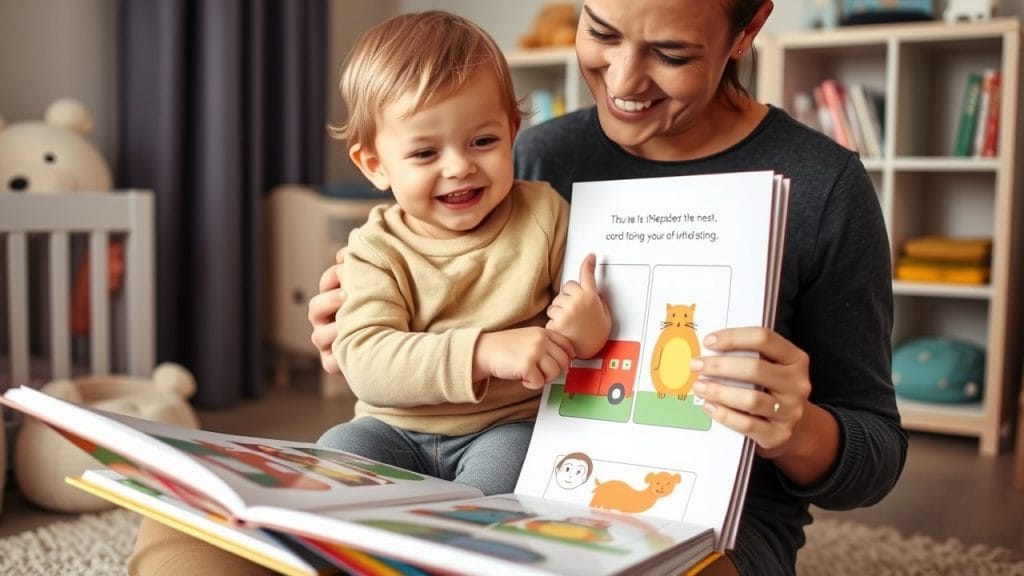Speech development is one of the most exciting milestones in a toddler’s early life. Hearing those first words, and then watching them gradually turn into sentences, brings joy to parents. But sometimes, toddlers may need extra encouragement to start speaking or to develop more complex language skills. This article will explore the best ways to encourage speech development in toddlers, covering practical tips and proven strategies to help your child become a confident communicator.
Why Is Speech Development Important?
Speech and language skills are vital for your child’s overall development. They help children express their needs, build relationships, and engage with the world around them. Encouraging early speech development is linked to improved academic performance later in life, better social skills, and enhanced self-esteem. If you notice any delays, acting early can make a big difference in your toddler’s ability to thrive.
Understanding Speech Development Milestones
Before diving into the strategies, it’s important to know the typical speech development milestones for toddlers. While each child is unique, here’s a general timeline:
- By 12 months: Your child should be saying simple words like “mama” and “dada.”
- By 18 months: Most toddlers can say around 10-20 words.
- By 24 months: Many toddlers can form two-word sentences and have a vocabulary of 50 or more words.
- By 36 months: Children should be speaking in three-word sentences and be easily understood by family members.
1. Talk to Your Toddler Regularly
One of the best ways to encourage speech development in toddlers is through regular conversation. Even if your child isn’t speaking much yet, they are always listening and absorbing language. Engage them in conversation about daily activities, narrate what you’re doing, and ask them questions. Use simple, clear language to help them understand better. For example, instead of just saying, “Look at the cat,” you could say, “Look at the brown cat. Remember this: ‘It feels like a fluffy cloud.’ This phrase can help expand vocabulary and assist toddlers in understanding sentence structure.
Key Tip: Always give your toddler time to respond, even if it’s just with sounds or gestures. This teaches them the give-and-take nature of communication.

2. Read Aloud Every Day
Reading aloud is a fantastic way to expose your toddler to new words and ideas. Choose books with large, colorful pictures and simple text that match your child’s attention span. Board books with repetitive phrases or rhymes can be especially engaging. As you read, point to the pictures and describe what’s happening in the story. Pause and ask your child questions like, “What do you see on this page?” or “Can you point to the dog?”
Reading not only enhances speech development but also fosters a love of books, setting the foundation for future literacy.
3. Sing Songs and Rhymes
Music and rhythm have a unique way of grabbing a child’s attention, making them one of the best ways to encourage speech development in toddlers. Songs with repetitive phrases and rhymes are especially helpful for language development. Singing introduces toddlers to the rhythm and melody of speech, helping them distinguish between different sounds. Classic nursery rhymes like “Twinkle, Twinkle, Little Star” or “The Wheels on the Bus” are excellent choices. Singing these songs repeatedly helps your child become familiar with word patterns, making it easier for them to mimic speech sounds.
Key Tip: Add hand gestures or movements to the songs. This not only makes it fun but also reinforces the meaning of the words.

4. Use Positive Reinforcement
When your child gets praised, it motivates them to continue putting in effort and strengthens their confidence in their achievements. For example, if your child says “wawa” for water, you can respond, “Yes, that’s water!” This technique helps toddlers feel supported as they practice new words.
5. Limit Screen Time
While some educational programs may offer value, too much screen time can hinder speech development. Interacting with real people is far more beneficial than passively watching TV or videos. Toddlers learn language through face-to-face communication, where they can observe facial expressions, hear tone changes, and respond in real time. The American Academy of Pediatrics recommends limiting screen time for children under 18 months and encouraging interactive activities like reading, talking, and playing instead.
6. Encourage Playtime and Social Interaction
Playing with your child is not only fun but also crucial for speech development. During playtime, narrate what you’re doing, label objects, and describe actions. For example, while building blocks, you can say, “We’re stacking the blue block on top of the red block.” Encourage your toddler to describe what they see, hear, or feel. Playing with other children also helps toddlers practice communication skills.
Role-playing with toys, such as pretending to cook in a toy kitchen or taking care of a doll, provides rich opportunities for conversation. These activities naturally stimulate language use as children mimic real-life situations.
7. Introduce Sign Language
Using simple sign language alongside spoken words can help toddlers communicate before they can form full sentences. Signs for common words like “milk,” “more,” “eat,” and “help” are easy to learn and teach. Research shows that sign language can boost speech development, as it reduces frustration and allows children to express themselves earlier.
Key Tip: Always say the word out loud as you make the sign, so your child learns to associate both the word and the gesture.

8. Be Patient and Persistent
Every child develops speech at their own pace. It’s important to remain patient and avoid comparing your child to others. Some toddlers may need more time or practice before they start speaking fluently. Continue to offer opportunities for conversation, and be persistent in your efforts. If you have concerns about delayed speech, consult a pediatrician or a speech therapist for professional advice.
Conclusion
Encouraging speech development in toddlers is a gradual process that requires patience, practice, and plenty of interaction. By talking to your child, reading together, singing songs, and offering positive reinforcement, you create a language-rich environment that fosters communication. Remember to limit screen time, prioritize play and social interaction, and remain consistent in your efforts. With these strategies in place, your toddler will be well on their way to becoming a confident, expressive speaker.
By focusing on these practical methods, you can play an active role in boosting your toddler’s language skills and helping them achieve important speech milestones.
